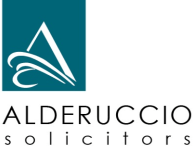Property Law & Conveyancing Melbourne
DON’T SIGN A PROPERTY “PURCHASE” CONTRACT WITHOUT A REVIEW – Please read this information and see our pricing.
As experienced Property Lawyers Melbourne, we bring many years of expertise in all aspects of property law and conveyancing.
We represent a broad range of clients, from individuals to large-scale developers.
We understand the needs of purchasers, sellers, developers, borrowers, and lenders. Our team has extensive experience in all types of property projects—from one-off conveyancing transactions to high-rise residential and commercial developments.
How Our Melbourne Property Lawyers Can Assist You
We provide legal support in the following areas:
- Buying and selling residential property, vacant or rural land, strata and community title, and commercial property
- Off-the-plan contracts, sales, and purchases
- Buying or selling at public auction or by private treaty
- Coordinating due diligence, searches, and property enquiries
- Managing subdivisions and developments, including joint ventures
- Drafting and reviewing building or development project contracts
- Advising on property disputes
- Representing you during dispute resolution and in court
- Assisting with site location and procurement
- Helping with finance procurement
Residential Conveyancing
Conveyancing is the legal process of transferring property ownership. Mistakes in this process can lead to serious legal or financial issues later. Our Property Lawyers Melbourne ensure your transaction is handled properly from start to finish.
Contract of Sale & Section 32 Vendor Statement
Section 32 (Vendor Statement)
This legal document provides critical details that may not be obvious during a property inspection.
It must include key information such as:
- Title search results
- Council planning and information certificates
- Contaminated land reports
- Any other material matters that could affect the property
Ultimately, a vendor statement helps the buyer decide whether to go ahead with the purchase.
Contract of Sale
In Victoria, there are two types of contracts used in residential property transactions:
- A standard Contract of Sale, and
- An Auction Contract.
Each must include key information such as property details, buyer and seller names, lawyer or conveyancer details, and the agreed price.
Once both parties sign, the contract becomes legally binding. A deposit—usually 10% of the purchase price—is then paid by the buyer.
What Happens When Property Has Been Sold?
Following the exchange, the settlement period typically ranges from 30 to 90 days, depending on what both parties have agreed upon.
During this time, your Property Lawyers Melbourne or conveyancer will coordinate with lenders, agents, and the other party’s lawyer to finalise the settlement.
Furthermore, additional investigations are often completed on the buyer’s behalf.
Council rates and other outgoings are also adjusted and reflected in the final settlement statement.
On settlement day, the remaining balance is paid, and ownership is legally transferred.
Commercial and Retail Leases
Commercial and retail leases define the legal terms for a business occupying premises. These agreements should be carefully drafted and reviewed to avoid disputes and ensure clarity.
We advise on:
- Drafting and reviewing leases
- Lease term negotiations, rent, exit clauses, and renewal options
- Subletting
- Resolving leasing disputes
Missed lease renewal windows can be costly. Tenants typically have 3–9 months before the lease ends to exercise their option to renew. We make sure you don’t miss critical deadlines.
Resolving Property Disputes
Co-Owner Disputes
Co-ownership disagreements often arise during relationship breakdowns, financial stress, or after a co-owner’s death. Disputes may relate to unequal contributions, development plans, or proposed sales.
Resolving these requires legal experience across property, family, and succession law.
Neighbour Disputes
Common issues include fencing and encroachment. These matters require careful negotiation to reach fair and practical solutions.
